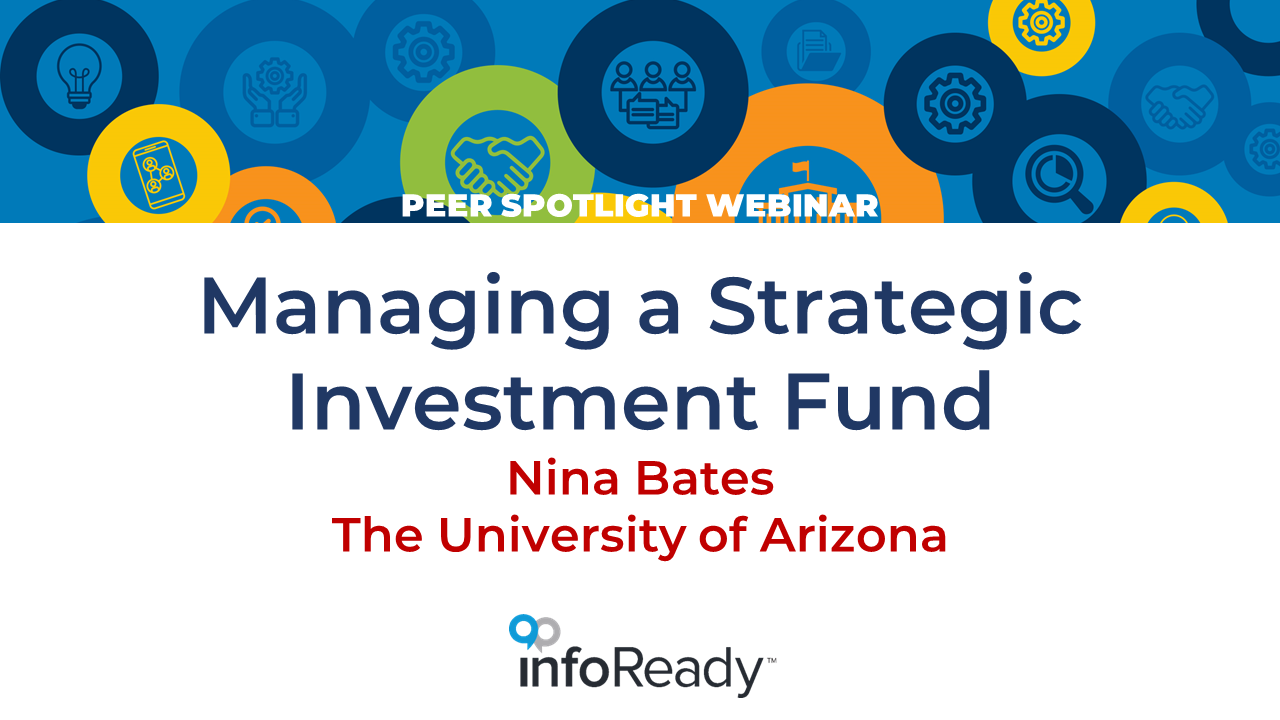Claire notes, “The reason we’re focusing on salary support for this is that early career researchers can find themselves between a rock and a hard place. The rock being that time to get pilot data, and the hard place being the need to have pilot data to get that protected time.” She shared her best practices for designing and managing this program using InfoReady.
Focus on reducing administrative AND applicant burden
- “When we started taking on these internal funding mechanisms, I really wanted to find a way to streamline the process, the administrative burden specifically on managing these grants.”
- Email and website messaging directed potential applicants to the InfoReady posting that included files and contact information.
- Throughout the process, all involved benefit from having materials and feedback in one cloud-based solution. Applicants were able to check the status of their submission and reviewers were able to see their to-do list, both which get updated automatically
Spend time upfront to save time later
“Creating an application form in InfoReady can take more work than just listing the requirements on a Word doc or a website, but the platform saves SO much time after submission.”
Claire specifically noted time savings with:
- No manual checking of character or word limits
- No manual creation of spreadsheets for scores
- No checking for missing information
- No manual creation of application packets or forwarding of submission materials to reviewers
Be willing to provide person-to-person support
InfoReady allows administrators to see draft applications in progress for real-time troubleshooting.
“Someone might be trying to submit, and they’d receive an error. They’d call me and I’d be able to pull it up and see that it looked like they forgot to save a document or enter a field.”
Fully document award decisions and data
“InfoReady is continuing to introduce a lot of monetary tracking type abilities in the system, so we want to make sure that we’re adding the dollar amounts that were awarded.”
Claire’s team also plans to use progress reports in the system to collect data directly from the awardees to measure ROI for this relatively new funding opportunity.
We want to thank Claire for sharing her insights into how her area supports junior faculty at a critical time in their careers.




